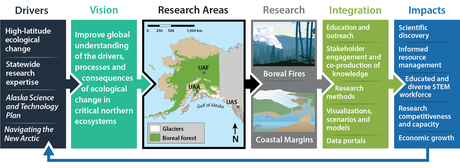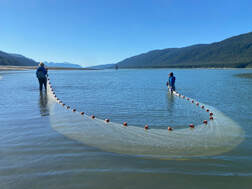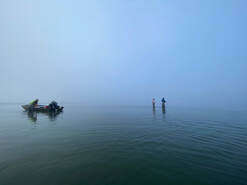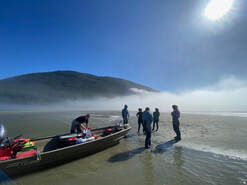Alaska EPSCoR Fire and Ice ProjectFunding provided by the National Science Foundation's Established Program to Stimulate Competitive Research (EPSCoR) provides opportunities for collaborative research across the University of Alaska system and beyond. The "Fire and Ice: Navigating Variability in Boreal Wildfire Regimes and Subarctic Coastal Ecosystems" is a 5-year program to support Alaska EPSCoR researchers to do research into fire risk and behavior in the boreal forests of Alaska and how changes in glacier cover in coastal Alaska will influence biological communities. I am evaluating food web connections in Lynn Canal (near Juneau, AK) as part of the Coastal Margins team. See below for more information on research groups collaborating on this project.
|
|
|
Coastal Margins research
Researchers on the Coastal Margins team are addressing the three primary research goals by focusing on 10 Gulf of Alaska watersheds, five watersheds in Lynn Canal (where my field work is focused) and five watersheds in Kachemak Bay, that reflect the glacier to non-glacier influence on coastal waterways. Work in my lab is focused on addressing aspects of Goal 2 (evaluating food webs using fatty acids) and Goal 3 (understanding marine invertebrate responses to current and anticipated future changes in the nearshore marine environment).




